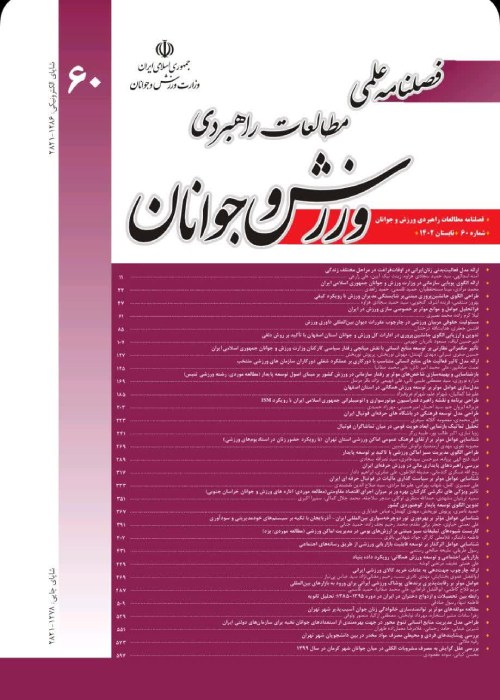High School Student's Point of View about the Effective Sources on their Religious Identity (Case Study:Karaj City)
Author(s):
Abstract:
The aim of this study was to identify factors influencing the formation of religious identity of Karajs students. The population consisted of Karajs high schools with cluster sampling from three regions uptown, downtown and innertown, three schools were selected. The method of research was mixed method and research tools were questionnaire and interview. At first for selecting the research sample, we used the Khodayarifard et al (2010) religiosity questionnaire that was executed on the high school fourth-grade students those were totally 230 individuals with the age average of 17 and acquired in theory field (mathematics, science and humanities). After the execution of religiosity questionnaire, 65 individuals who received the highest score in the religiosity questionnaire were selected and each person responded separately to the questions about effective religious identity formation resources which were made by the researcher (a Semistructured questionnaire were adjusted according to contributing sociological factors to the formation of religious identity and the final form was used after using the highly qualified experts opinions) in a 15-minute session. Descriptive content analysis was used in evaluating of the interview data. The findings of analysis performed on the sample of interviews showed these effects on students religious identity: (1) school (teachers characteristics, educational activities, and curriculum) (2) families (economic issues, cultural level, religiosity, the type of the job and ...) (3) social factors (media issues, cultural programs of mosques, government officials, and religious bodies) The results showed that orderly the most important factors in the formation of students religious identity was parents religiousness, participating in religious organizations and student clubs. The results also showed that a number of high- ranking state officials and ineffective teachers had have been negative results on the student's religious identity formation. Findings suggest that family education and religious upbringing of children to education be taken seriously and religious organizations should organize students with proper planning.
Keywords:
Language:
Persian
Published:
Strategic Studies On Youth and Sports, Volume:14 Issue: 29, 2016
Page:
109
magiran.com/p1521090
دانلود و مطالعه متن این مقاله با یکی از روشهای زیر امکان پذیر است:
اشتراک شخصی
با عضویت و پرداخت آنلاین حق اشتراک یکساله به مبلغ 1,390,000ريال میتوانید 70 عنوان مطلب دانلود کنید!
اشتراک سازمانی
به کتابخانه دانشگاه یا محل کار خود پیشنهاد کنید تا اشتراک سازمانی این پایگاه را برای دسترسی نامحدود همه کاربران به متن مطالب تهیه نمایند!
توجه!
- حق عضویت دریافتی صرف حمایت از نشریات عضو و نگهداری، تکمیل و توسعه مگیران میشود.
- پرداخت حق اشتراک و دانلود مقالات اجازه بازنشر آن در سایر رسانههای چاپی و دیجیتال را به کاربر نمیدهد.
دسترسی سراسری کاربران دانشگاه پیام نور!
اعضای هیئت علمی و دانشجویان دانشگاه پیام نور در سراسر کشور، در صورت ثبت نام با ایمیل دانشگاهی، تا پایان فروردین ماه 1403 به مقالات سایت دسترسی خواهند داشت!
In order to view content subscription is required
Personal subscription
Subscribe magiran.com for 70 € euros via PayPal and download 70 articles during a year.
Organization subscription
Please contact us to subscribe your university or library for unlimited access!



